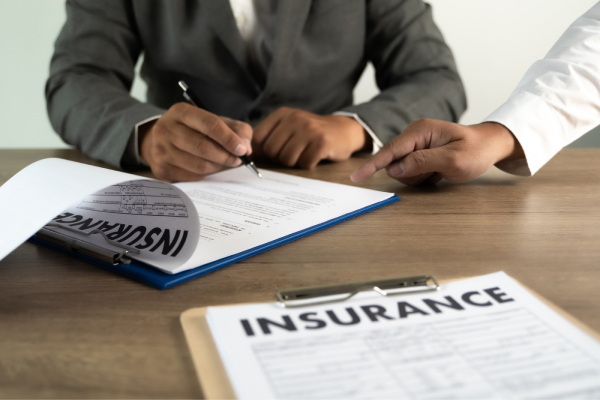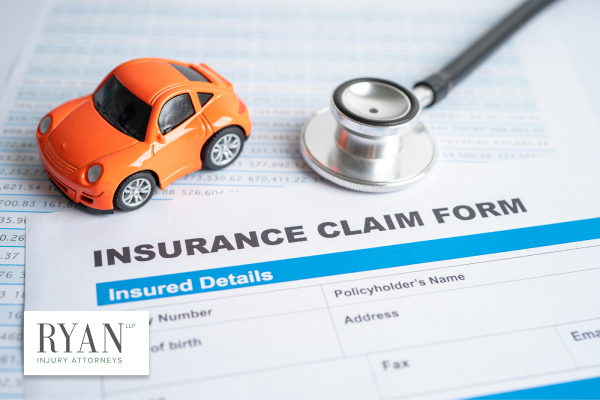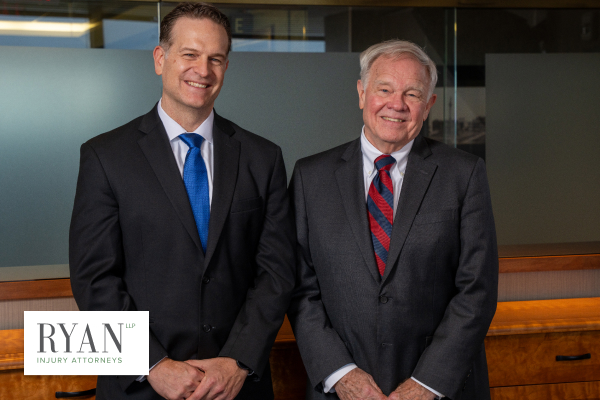
Getting into a car accident is always a challenging experience. Navigating the process of filing a car accident insurance claim settlement is crucial to ensure you receive the compensation you deserve. Understanding the steps involved and how to prepare your claim properly can significantly affect the outcome. It's important to gather all necessary information and documentation to support your claim, which includes understanding the role of insurance companies and the specifics of your insurance coverage.
At Ryan LLP, we have plenty of experience helping clients with car accident claims. We always strive to maximize our car accident settlements and can do the same for you. Contact us today for a free consultation with our personal injury lawyer to discuss your car accident lawsuit.
An insurance claim settlement after a car accident is an agreement between you and the insurance company. This settlement concludes your claim and provides you with compensation for your losses. The process involves negotiating with the insurance company to reach a fair amount that covers your damages, including medical expenses and car repairs. It's a critical step in recovering financially from a car accident.
First, you must file a claim with the relevant insurance company detailing the accident and your damages. The insurer will review your claim, which may involve investigating the accident. Understanding your insurance coverage and the terms of your policy is crucial in this phase. A successful settlement will depend on the strength of your claim and your negotiation skills.
After a highway motor vehicle collision, insurance companies play a vital role in the recovery process. They assess the damages, determine fault, and negotiate settlements. Their main goal is to settle claims efficiently while managing their costs. This means they may only sometimes offer the amount you believe your claim is initially worth.
Insurance companies require detailed information about the accident to process your claim. This includes police reports, witness statements, and evidence of damages. They will also assess your medical records to see if you claim injuries. It's important to provide comprehensive documentation to support your claim.
Determining which insurance company pays depends on the state's fault laws and the specific circumstances of the car accident. In at-fault states, the motorist who caused the crash (and their insurance) is typically responsible for covering the damages. Ohio is an at-fault state.
Depending on the situation, both insurance companies may share the costs. Understanding Ohio's laws and the details of your insurance policy is essential. Knowing this information can help you file your claim correctly and increase your chances of a successful settlement.

Effective preparation of your insurance claim is crucial for a successful outcome. This means gathering all necessary evidence, including photos of the accident scene, witness statements, and police reports. These documents can improve your claim and help ensure you're fairly compensated.
Documenting your injuries and medical treatment is also vital. Preserve records of all medical visits, treatments, and any related expenses. These documents will be key in proving the extent of your injuries and securing compensation for medical bills.
The true cost of your SUV accident encompasses more than just the immediate damages to your vehicle or initial medical expenses. It also includes long-term medical care, lost wages if you cannot work, and any pain and suffering you've experienced. Calculating these costs accurately ensures your settlement covers all your losses.
Consider future expenses related to your accident and include them in your claim. Consulting with professionals, such as doctors or an experienced attorney, can help you accurately calculate total costs. Remember, a comprehensive claim should reflect the total impact of the accident on your life, both now and in the future.
The adjuster is crucial in the insurance claim process. They review your claim, assess the damage, and determine the settlement amount. They settle claims efficiently, aiming to minimize the insurance company's costs.
Insurance adjusters will examine your evidence, so it's essential to ensure it's comprehensive and well-documented. They may also negotiate the settlement amount with you or your lawyer. Understanding their role and how they operate can help you navigate these negotiations more effectively.
When dealing with adjusters, remember they have extensive experience with claims. Be prepared and know the value of your claim. Ask for clarification if you have questions. A well-prepared claimant can significantly influence the negotiation process.

Admitting fault at the accident scene or to the insurance company can severely impact your claim. Prematurely admitting fault can lead to denying your claim or a reduced settlement.
Insurance companies will investigate the accident thoroughly. Let them conduct their review without making assumptions about fault. Statements you make can be used against you, so be cautious about what you say.

Involving a personal injury attorney in your car accident claim can make a significant difference. Your attorney can negotiate with your insurer, ensuring you don't settle for less than you deserve. An experienced motor vehicle accident attorney understands the legal nuances and can advocate on your behalf effectively.
Accepting a settlement offer or taking your case to court can be challenging. A lawyer assesses the pros and cons based on the specifics of your case. Litigation may offer the possibility of a higher payout but comes with risks and uncertainties.
Knowing whether you've received a great offer involves understanding the full extent of your damages and future needs. A great offer should cover all your medical costs, lost pay, and pain and suffering. It should also consider any future financial impacts related to the car accident.

Navigating the aftermath of a car accident can be challenging, but you don't have to do it alone. At Ryan LLP, we have experienced car accident lawyers who can guide you through each step of the car accident settlement process. Contact us today for a consultation to discuss your personal injury claim.